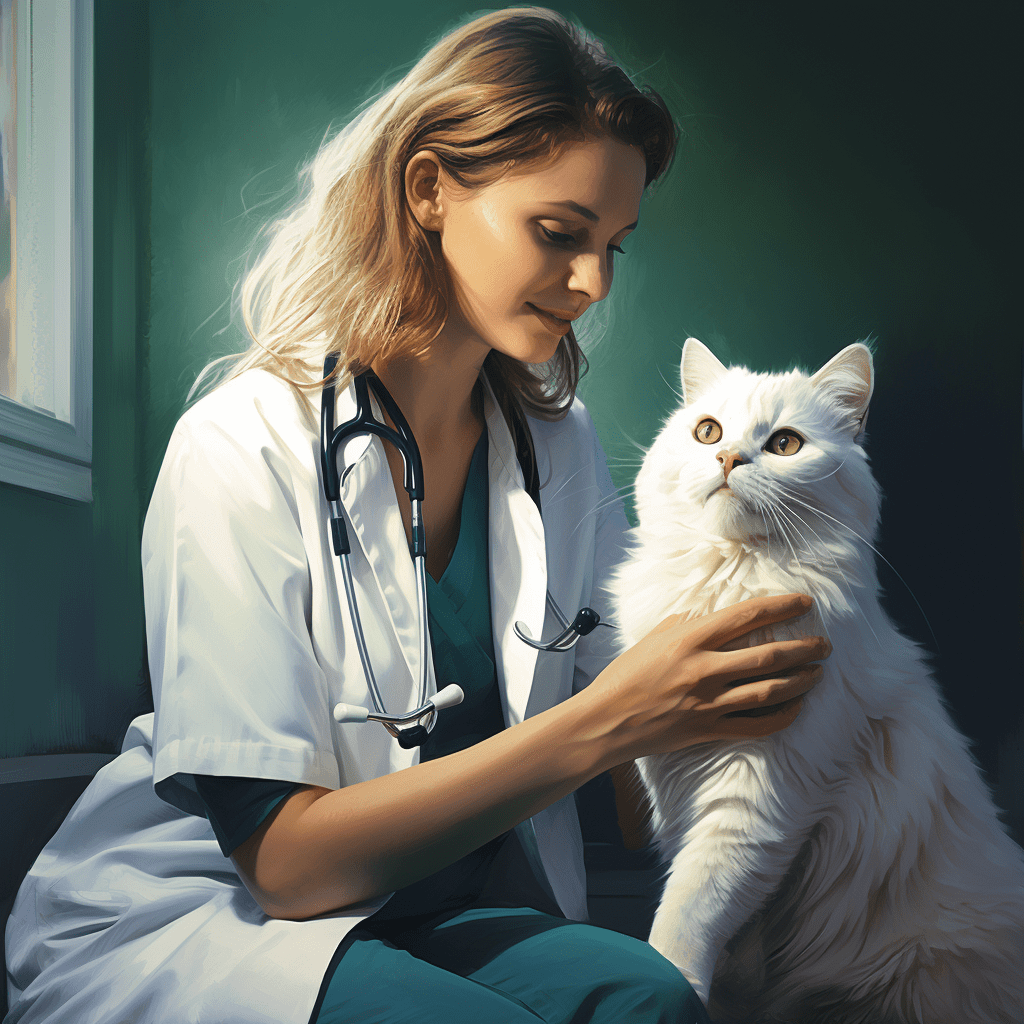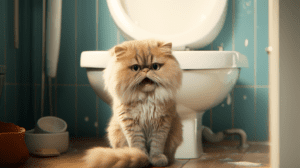The Pivotal Elements of Feline Well-Being: A Comprehensive Guide to Cat Health
At Kjubii Mods, understanding the intricate details of cat health is a priority. Embark on a detailed journey exploring how to ensure your pet is not only surviving but thriving.
Introduction
Believing every cat deserves a vibrant and healthy life, this professional guide covers everything from behavior to nutrition and beyond.

Key Takeaways
| Aspect | Key Details |
|---|---|
| Cat Behavior | Link to understanding and improving health |
| Nutrition | Foundation for physical well-being |
| Grooming | Contributes to a clean and healthy coat |
| Emotional Well-Being | Importance of a bond between cat and owner |
| Preventive Care | Regular check-ups for a smooth health journey |
| Dental Health | Often overlooked but crucial |
| Spotting Health Issues | Quick identification for early intervention |
| Senior Cat Care | Adjusted care for older cats |
| FAQs | Answers to common questions on cat health |
| Conclusion | Summarize the importance of comprehensive cat health practices |
Understanding Cat Behavior and Health
Recognizing and interpreting cat behavior is a cornerstone of ensuring cat health. Traits to monitor include activity level, appetite changes, and litter box habits. Further insights on behavioral health can be found in the detailed article on what your cat’s poop says about their well-being.
The Importance of Nutrition in Cat Health
Nutrition plays a pivotal role in maintaining optimal health for your feline friend. A balanced diet contributes to vitality and longevity. Essential components include proteins, fats, carbohydrates, vitamins, and minerals.

Grooming: More Than Just Looks
Grooming promotes a healthy coat and reduces the risk of skin infections. Grooming practices include brushing, bathing, and nail trimming.

Deciphering Your Cat’s Communication
Cats communicate in various ways, with vocalizations, body language, and behavior being key indicators of their health and emotional state.
Bonding with Your Cat: Enhancing Emotional Well-Being
The bond between you and your cat is fundamental to their emotional well-being. Playtime, petting sessions, and shared moments of relaxation contribute to a cat’s happiness.

Preventive Care: The Role of Regular Check-ups
Regular veterinary check-ups are vital in preempting health issues. These assessments offer valuable insights and can lead to early interventions.

Dental Health: The Overlooked Aspect
Dental health is crucial, as periodontal diseases can contribute to systemic health issues in cats. Key dental care practices include regular brushing, dental checks, and dental treats.
Weight Management and Exercise
Proper weight management and exercise are essential for a cat’s health, preventing numerous health complications. Exercise activities include interactive toys, climbing structures, and regular play sessions.
Managing Stress and Environmental Enrichment
A stress-free environment and enrichment activities play a significant role in maintaining your cat’s mental health. Enrichment ideas include scratching posts, puzzle feeders, and access to safe outdoor spaces.
Spotting Health Issues Early
Be vigilant for changes that could indicate a health problem. Signs to watch for include altered behavior, unexplained weight loss or gain, and changes in appetite or water intake.
Common Feline Diseases and Prevention
Awareness and prevention are key against common feline diseases. Regular vaccinations and check-ups can protect your pet from serious health issues. Preventable conditions include Feline leukemia virus (FeLV), Feline immunodeficiency virus (FIV), and Upper respiratory infections.
The Importance of Hydration
Hydration is critical, particularly for maintaining kidney function and preventing urinary tract diseases. Hydration tips include fresh water, wet food in the diet, and water fountains to encourage drinking.
Advancements in Feline Veterinary Care
Veterinary medicine is continually improving, with advancements that enhance the quality of life for cats. Innovative treatments include minimally invasive surgery, laser therapy, and stem cell treatments.
Integrating Holistic Health Practices
Holistic approaches can complement traditional veterinary care, focusing on overall well-being rather than just treating symptoms. Holistic methods may include acupuncture, herbal remedies, and dietary supplements.
Understanding Vaccinations and Parasite Control
Vaccinations are fundamental to preventing infectious diseases, while parasite control helps prevent issues like fleas, ticks, and worms. Key points include regular vaccinations and vet-recommended parasite prevention.
The Role of Supplements in Cat Health
Supplements can be beneficial, especially for specific health needs or deficiencies. Common supplements include Omega-3 fatty acids, probiotics, and joint support formulas.
Senior Cat Care: Special Considerations
As cats age, they may require modified care, including adjusted nutrition, more frequent veterinary visits, and accommodations for mobility issues.
Genetic Health and Breeding Considerations
Genetic predispositions can impact health. It’s important for pre-emptive care and responsible breeding to understand breed-specific issues.
Planning for Emergencies
Being prepared for emergencies can make all the difference. Preparation tips include knowing the location of the nearest emergency vet, creating a pet first-aid kit, and having an evacuation plan that includes your pets.
Conclusion
Enhancing the health and happiness of cats worldwide is a commitment. Understand and meet your cat’s comprehensive health needs to secure a joyful and long life for your beloved pet. Celebrate every milestone in their journey with love, knowledge, and care.
Frequently Asked Questions
1. What should be fed to a cat for optimal health?
A high-protein, low-carbohydrate diet with quality wet food is recommended. Consult a veterinarian for a balanced diet plan.
2. How often should cats visit the vet?
Healthy adult cats should have an annual check-up, while senior cats or those with health issues may need more frequent visits.
3. What are the signs of stress in a cat?
Signs include over-grooming, changes in litter box habits, hiding, and changes in appetite.
4. Can indoor cats be happy and healthy without outdoor access?
Yes, provide environmental enrichment like scratching posts and window perches to satisfy their instincts.
5. What vaccinations are needed for a cat?
Core vaccines include rabies and distemper, and others may be recommended based on lifestyle and risk factors.
6. How can it be determined if a cat is in pain?
Look for changes in behavior, mobility issues, changes in grooming habits, and vocalization.
Caption: A well-balanced diet is fundamental to a cat’s health.
Weight Management and Exercise
Maintain an ideal weight to reduce the risk of diabetes, arthritis, and liver problems. Control portion sizes and encourage exercise with toys. Regularly assess your cat’s body condition.
Managing Stress and Environmental Enrichment
Reduce stress for good health with a stimulating environment. Use calming products, and provide interactive play and hiding spots for privacy.

Caption: Grooming is essential for hygiene, comfort, and stress reduction.
Spotting Health Issues Early
Monitor your cat closely, as they can mask discomfort. Perform home health exams and note unusual behaviors or habits, addressing any concerns promptly.
Common Feline Diseases and Prevention
Manage and prevent health issues with proactive care. Keep indoor-only lifestyles, provide fresh water, and ensure routine health checks.
In conclusion, understanding and proactive management of a cat’s health can lead to a fulfilling and long-lasting companionship.
